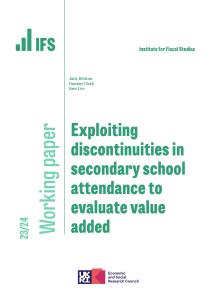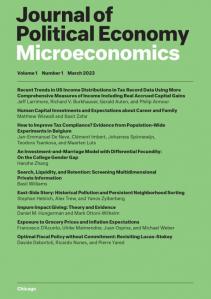We study an intensive social programme in Chile that combines home visits to households
in extreme poverty with guaranteed access to social services. The goal of the programme
was to connect marginalized families to the social system, which, in turn, should lead to improvements in their living conditions. Programme impacts are identified using a regression
discontinuity design, that explores the fact that programme eligibility is a discontinuous function of an index of family income and assets. There is no evidence of short- or long-term
effects of the programme on employment or housing outcomes. However, we find short- and
medium-term impacts of the programme on the take-up of subsidies and employment services,
which are concentrated among families who had little access to the welfare system prior to the
intervention.
Authors

Research Fellow University College London
Pedro is a Professor of Economics at University College London and an economist in the IFS' Centre for Microdata Methods and Practice (cemmap).

Research Associate University of Bergen
Rita is an IFS Research Associate, an Associate Professor at the University of Bergen and a Research Associate at the Uppsala University.

Emanuela Galasso
Journal article details
- DOI
- 10.1111/ecoj.12594
- Publisher
- Oxford Academic
- Issue
- January 2019
Suggested citation
P, Carneiro and E, Galasso and R, Ginja. (2019). 'Tackling social exclusion: evidence from Chile' (2019)
More from IFS
Understand this issue

Sure Start achieved its aims, then we threw it away
15 April 2024

Cuts to council services likely unless cost pressures abate – even with the biggest council tax increases for 20 years
21 June 2024

Public investment: what you need to know
25 April 2024
Policy analysis

The two-child limit: poverty, incentives and cost
17 June 2024

How would the parties’ tax and spending plans affect Scotland and Wales?
28 June 2024

How should we interpret parties’ public spending pledges this election?
23 June 2024
Academic research

Police infrastructure, police performance, and crime: Evidence from austerity cuts
24 April 2024

Exploiting discontinuities in secondary school attendance to evaluate value added
19 July 2023

Social incentives, delivery agents and the effectiveness of development interventions
6 October 2022